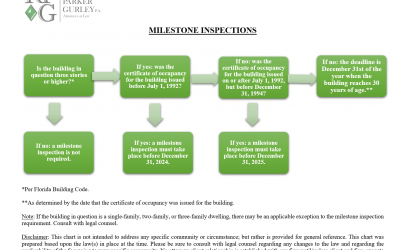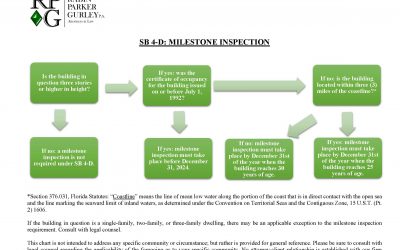Condominium Associations & Insurance Subrogation Claims:
Have you ever actually read your Association’s insurance policy? Have you thought about what might be lurking in the fine print? Have you considered that it might actually be what you don’t find in the fine print that proves most impactful to you and your community?
Universal Property & Casualty Insurance Company, among other large insurance companies who provide unit-owner insurance (HO6 policies), have made it big business to file subrogation claims against community associations. These carriers routinely file suit seeking to recover amounts that they have paid to their own insured(s) following a casualty loss, often with very little, if any, substantive evidence of wrongdoing on the part of the association. Their modus operandi is to file a lawsuit with aim to settle these cases for close to “nuisance value”, as associations rarely wish to participate in protracted litigation and therefore pay to make each case “go away.” Even at nuisance value, carriers stand to recover substantial amounts given the sheer volume of cases, thus it is worth it to them to continue the practice. As a result, many Associations find themselves on the losing end of the bargain, often having to pay their own insurance company an additional sum of money for the very protection they thought they had already secured with their insurance premium.
However, a wise Association can protect itself. Florida Statute § 627.714(4) states “[i]f a condominium association’s insurance policy does not provide rights for subrogation against the unit owners in the association, an insurance policy issued to an individual unit owner in the association may not provide rights of subrogation against the condominium association.” Put plainly, and while there is some nuance that goes beyond the scope of this article, the cited Statute generally means that a unit owner’s insurance company may not bring a viable subrogation action against an association where the association’s own insurance policy does not authorize subrogation claims. Despite the existence of this Statute, many insurance companies file subrogation lawsuits without first examining the defendant-association’s insurance policy to determine whether the necessary subrogation language exists. Worse yet, we suspect many associations have paid to settle cases without knowing whether the cited Statute affords them a viable defense.
Our firm has successfully resolved subrogation cases via dismissal of the case due to the carrier’s failure to comply with the cited Statute (i.e., because our client’s policy did not have a right of subrogation, the insurance company was not able to bring a subrogation action against them). A thorough reading of the policy language in this regard has saved our clients thousands of dollars in settlement costs and litigation fees. For this reason, we strongly recommend that you carefully examine your association’s insurance policy, and if your association finds itself defending a subrogation lawsuit, be certain to consult with experienced community-association litigation counsel.
Moral of the story: Know your policy.
To review this article in PDF format, please click the link below:






